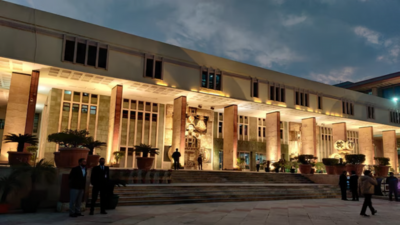The Delhi High Court on Friday directed the handover of a deceased man’s frozen sperm sample to his parents after determining that the man had given consent before his death for the potential use of his sperm for reproduction.
Justice Prathiba M Singh, who presided over the case, emphasized that there is no legal prohibition against posthumous reproduction, which involves using a person’s sperm or egg after their death to conceive a child, provided the individual had granted explicit consent.
“Is there any prohibition on posthumous reproduction under the existing law? The answer is clearly in the negative,” stated Justice Singh in the October 4 ruling. She further clarified that Indian law does not bar posthumous reproduction if consent from the sperm or egg owner is demonstrable.
The case involved a petition filed by the parents of a man who passed away at the age of 30 in 2020 due to cancer. During his treatment, the man had preserved a sperm sample on medical advice, as chemotherapy posed a risk to his fertility. Following his death, his parents wished to use the sperm to carry on his legacy but were forced to approach the court after the hospital refused to release the sample without a court order.
The parents argued that they were the legal heirs of their son and that no law prevented them from claiming his genetic material. They assured the court they would take full responsibility for raising a child born through surrogacy or another reproductive method using the sperm. In support of their case, they cited international precedents that permitted postmortem sperm retrieval (PMSR) and posthumous reproduction.
Justice Singh ruled that since the deceased man had provided clear consent for the preservation of his sperm, it constituted his property. As his legal heirs, the parents were entitled to its release. The court recognized that human reproductive material has significant implications for family lineage and reproductive rights, thus validating the writ petition against the hospital.
“There is no law prohibiting the parents’ petition,” Justice Singh said, referencing Section 24(f) of the Assistive Reproductive Technology (Regulation) Act, 2021, which allows posthumous collection of reproductive cells with prior consent.
On the social acceptability of the decision, the court noted that in India, it is not uncommon for grandparents to raise children in the absence of their parents due to circumstances like separation, divorce, or death. Justice Singh highlighted that the cultural ethos does not reject the idea of grandparents having custody of children, reinforcing that they are capable of raising their grandchildren.
The court ordered the hospital to release the frozen sperm sample to the man’s parents, with the stipulation that it must not be used for any commercial or financial purpose.
Senior Advocate Suruchii Agarwal and her team represented the petitioners, while Central Government Standing Counsel Kirtiman Singh, along with other advocates, appeared for the State and the hospital.

















